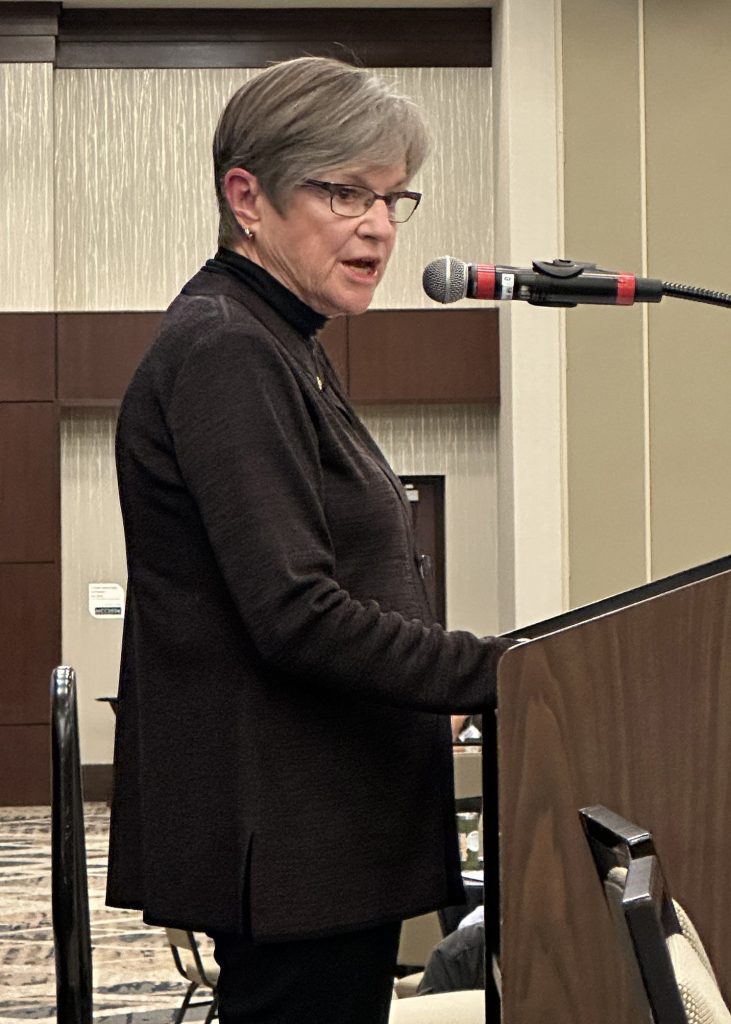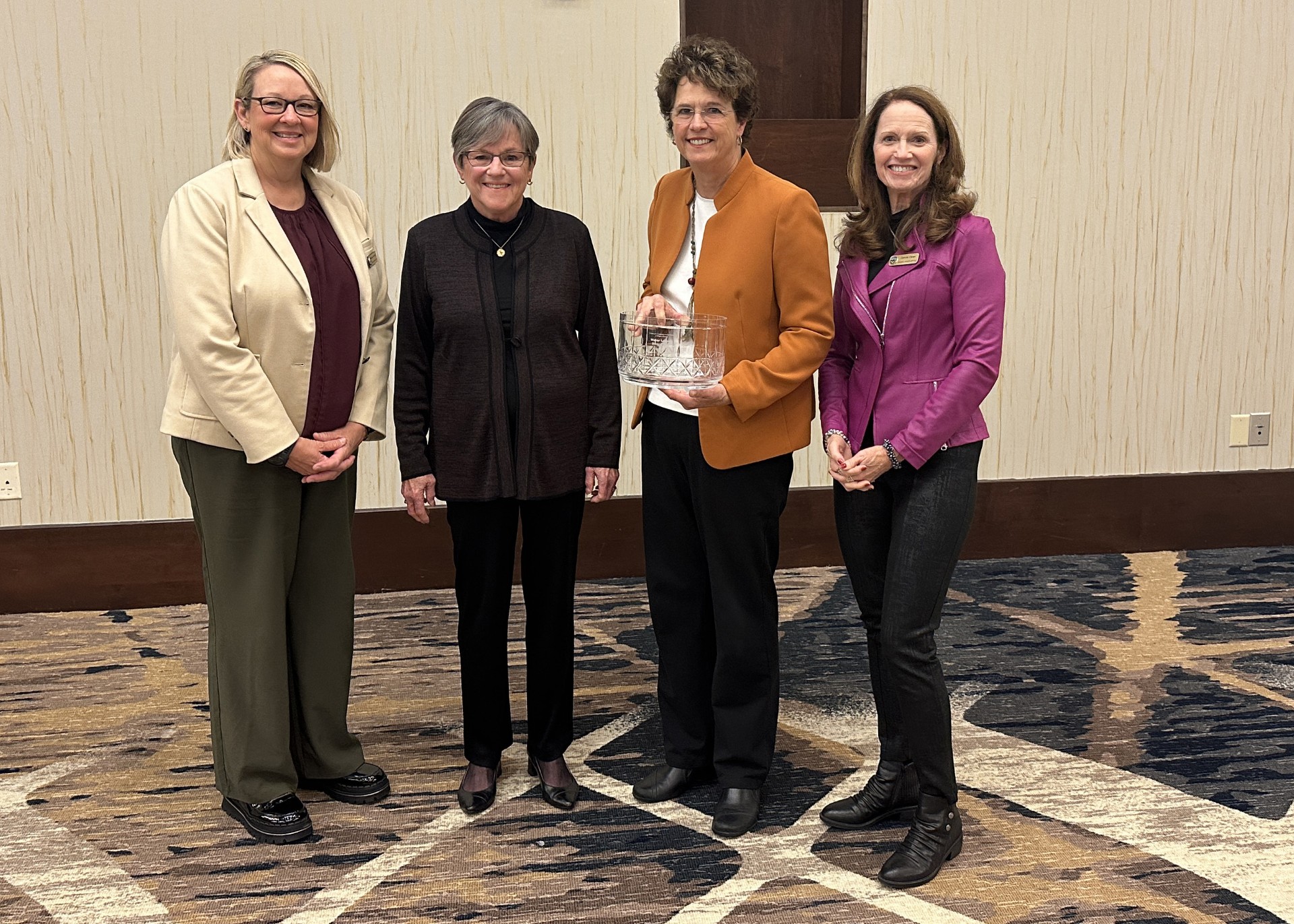When Kansas Gov. Laura Kelly ran for re-election in 2022, developing a roadmap for the future of water in Kansas was near the top of her to-do list.
At the 2024 Governor’s Water Conference, Nov. 13-14 in Manhattan, she summarized progress in carrying the Kansas Water Plan to fruition. In the above photo, Sen. Carolyn McGinn, second from right, earned the 2024 Kansas Water Legacy Award at the Governor’s Water Conference Nov. 14 in Manhattan. She is pictured with Dawn Buehler, chair of the Kansas Water Authority; Kansas Gov. Laura Kelly and Connie Owen, director of the Kansas Water Office.
“For too long, water has been treated as an issue for the next generation to solve,” she told conference attendees. “That has to change, and we are the ones to change it. It has to be a multi-generational promise, a commitment that each generation will protect our water supply. Each generation takes steps to ensure that two generations from now, Kansans still have the water they need.”

Water challenges differ across the state. Western Kansas must face the long-term viability of the Ogallala Aquifer; eastern Kansas may face sedimentation in reservoirs. “But every generation has a role in extending our diversity further into the future,” she said, “And it starts with us.”
In creating the framework for a strategic plan, in the last year the Kansas Water Authority has hosted 28 regional advisory meetings. Fourteen in-person local council meetings have been held across the state, and more than 50 focused discussions have been held with stakeholders who have an array of interests.
“The message heard through this process so far is clear,” Kelly said. “Kansans want us to be both practical and bold. They want more investment, but they want us to show meaningful, measurable progress on our water issues with dollars we do have. Having access to a clean, secure water supply is an issue of survival for Kansas communities, and people want action now.”
Kelly said by the end of the year, the state will have recommendations based on the feedback of its citizens.
“I look forward to putting those ideas into action as quickly as possible,” she said. “Our task is urgent, and the stakes are high.”
‘Implementation and Action’
Throughout the two-day conference, organizers stressed the importance of collaboration and determination to find solutions to Kansas’ water challenges.
Julie Lorenz, a consultant to the Kansas Water Office, said Kelly is charging the state’s water agencies and stakeholders to develop a 10-year water program, renewed every 10 years with updated goals and metrics — not unlike the state’s 10-year transportation plan. Importantly, consistent funding will be made available, Lorenz added.
“We’re in infancy stages of putting that cross-agency plan together,” she said. “It’s not about the agencies. It’s about solving problems. We have had a bold vision, dating back to Gov. (Sam) Brownback. We have the 2022 Water Plan. What we need now is action. We need implementation of those plans.”
The group recommends making a multi-generational promise to ensure all Kansans have access to 50 years or more of the water supply, with a standardized definition of what a water supply means and the methodology to track that, Lorenz said.
Communities across the state have different methods to measure water supplies. Without standardized methodology, it’s difficult to know where improvements can be made, or where efforts have been successful. A shared understanding enables Kansas communities to take positive action that delivers on the multi-generational promise.
“That’s a game-changer,” she said.
Within a few years of successful implementation, the Kansas Water Authority Strategic Plan would enable:
- all Kansans to have at least 50 years of water or live in a community or region with a plan to achieve that.
- at least 50% of all irrigation systems to receive technology upgrades, saving up to 60% of water while retaining on-farm profitability.
- 99% of all drinking water systems to meet federal health standards.
- 60% of Kansans to see improvements to the reservoir that provides their water supply.
Bill Spiegel can be reached at journal@hpj.com.




